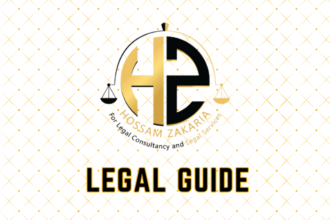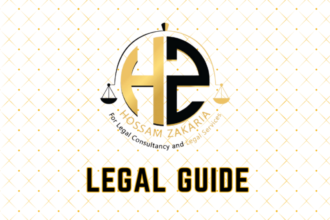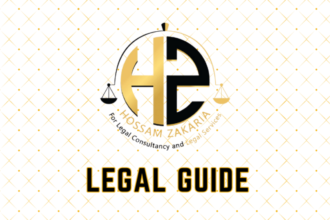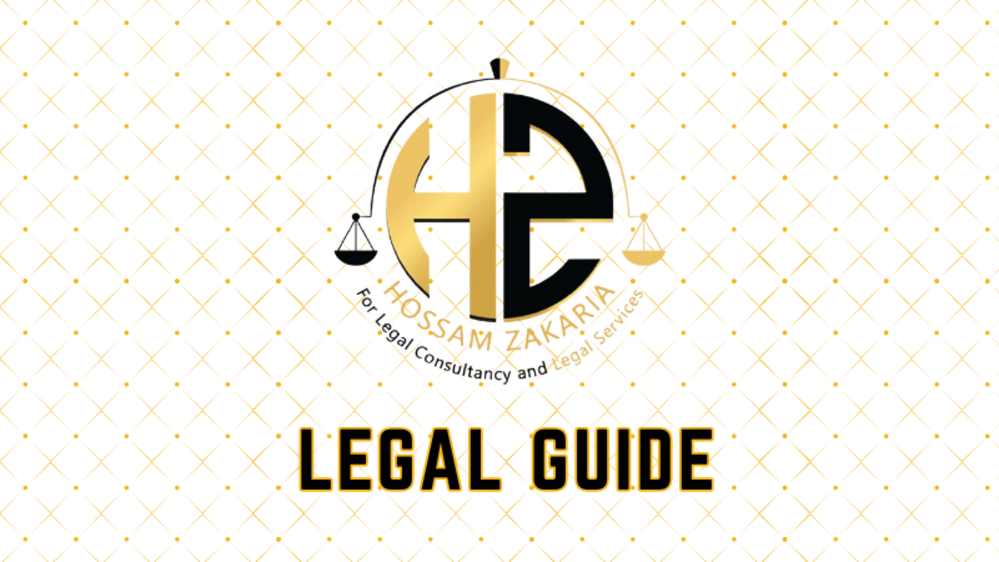Introduction
The evolving landscape of banking regulation in the Gulf Cooperation Council (GCC) has prompted a surge of interest among UAE-based financial institutions exploring opportunities in neighboring jurisdictions, particularly Saudi Arabia. The convergence of strategic economic goals, increasing regional integration, and ongoing regulatory reforms makes the subject of cross-border banking establishment both timely and highly relevant.
This article offers a comprehensive, consultancy-grade legal analysis of the regulatory pathways required for establishing banking operations in the Kingdom of Saudi Arabia (KSA), viewed through the lens of UAE legal best practices and recent 2025 updates. Professionals, executives, and corporate decision-makers will find actionable guidance on navigating KSA’s rigorous licensing frameworks, while maintaining compliance with UAE’s federal decrees and international standards. The article draws on official legal sources, including the UAE Ministry of Justice, the Saudi Central Bank (SAMA), and recent Cabinet Resolutions, to provide authoritative and reliable insights. This is especially pertinent for organizations aiming to segment their financial operations within the GCC, ensuring both agility and legal security amid changing regional dynamics.
Table of Contents
- Overview of Current Legal Frameworks in KSA and UAE
- Saudi Arabia’s Banking Regulatory Fundamentals
- UAE Legal Requirements and Cross-Jurisdictional Compliance
- Sequential Steps for UAE Entities Seeking Saudi Banking Licenses
- Comparison Table: Regulatory Changes—Old vs New
- Case Studies and Hypotheticals from a UAE Perspective
- Risks of Non-Compliance and Proactive Compliance Strategies
- Conclusion and Forward-Looking Recommendations
Overview of Current Legal Frameworks in KSA and UAE
Banking Sector Evolution in the GCC
The GCC region, with its robust financial infrastructure and ambition for international connectivity, has witnessed substantial legal modernization. Saudi Arabia, under Vision 2030, and the UAE, via progressive federal reforms and the Financial Services Regulatory Authority (FSRA), have both reinforced their commitment to regulatory clarity, financial stability, and market competitiveness. A notable trend is the harmonization of bank licensing standards, especially with the anticipated introduction of UAE Law 2025 updates and the continued application of UAE Federal Decree-Law No. (14) of 2018 on the Central Bank & Organization of Financial Institutions and Activities.
Why UAE Entities Target Saudi Arabia for Expansion
Key drivers include:
- A large, under-penetrated market with a young, tech-savvy population.
- Growing demand for diversified banking services, including Shariah-compliant finance.
- Favorable reforms in KSA’s legal framework governing foreign investment and licensing.
Impact of Legal Updates on Cross-Border Banking
Recent updates to UAE law, such as anticipated new Cabinet Resolutions and continuous enhancements to compliance reporting standards, have made it imperative for UAE-incorporated entities to structure their regional strategies in full alignment with both UAE and Saudi legal requirements.
Saudi Arabia’s Banking Regulatory Fundamentals
The Banking Control Law and its Key Provisions
The primary statute governing commercial banking in Saudi Arabia is the Banking Control Law (Royal Decree No. M/5 dated 22/2/1386H, corresponding to 11/6/1966G), enforced and administered by the Saudi Central Bank (SAMA). This law lays the groundwork for regulatory oversight, defining the licensing process, capital requirements, permissible activities, and reporting obligations for banks and financial institutions.
Key Licensing Criteria under SAMA
SAMA’s regulatory criteria are explicit and robust:
- Minimum paid-up capital requirements (currently SAR 15 billion for local banks, subject to periodic review).
- Fit and proper criteria for shareholders and directors, including criminal, financial, and reputational screening.
- Submission of detailed feasibility studies, business models, and risk management frameworks.
- Ongoing obligations for prudential reporting and anti-money laundering (AML) compliance in accordance with SAMA Circulars and international best practices.
Foreign Bank Licensing: Conditions and Practicalities
Foreign banks, including those based in the UAE, may seek to establish a presence via branches or subsidiaries. SAMA requires a formal application, endorsement by the Saudi Council of Ministers, and significant prior experience in regulated banking markets. SAMA’s Circular No. 391000064014 (2021) details the requirements for cross-border applicants, including the necessity of home jurisdiction regulatory support and robust compliance credentials.
UAE Legal Requirements and Cross-Jurisdictional Compliance
Compliance with UAE Central Bank Directives
For UAE-registered financial entities, outward expansion must comply with:
- UAE Central Bank regulations as set out in Federal Decree-Law No. (14) of 2018 (and anticipated amendments in UAE Law 2025 updates).
- Cabinet Resolution No. (10) of 2019 on financial institutions’ cross-border activities.
- Anti-money laundering and counter-terrorism financing regulations, including the Cabinet Decision No. (10) of 2019 and related Ministry of Justice guidelines.
Key Documents and Approvals Required in the UAE
Expansion into Saudi Arabia from the UAE mandates:
- Shareholder and board approvals as per UAE Commercial Companies Law (Federal Decree-Law No. (32) of 2021).
- Disclosure to the UAE Central Bank for permission, subject to risk assessment and compliance checks.
- Demonstrable internal controls, including data protection and financial crime compliance, typically verified prior to cross-border operations.
Sequential Steps for UAE Entities Seeking Saudi Banking Licenses
| Stage | Action | Legal Reference | Best Practice |
|---|---|---|---|
| Pre-Application | Conduct feasibility study, risk assessment, KSA market due diligence | UAE Federal Decree-Law No. (32) of 2021 | Engage legal and financial advisors in both UAE and KSA |
| Internal Approvals | Board/shareholder resolutions, disclosure to UAE Central Bank | UAE Central Bank Regulations; Commercial Companies Law | Document all decisions, maintain board minutes and resolutions |
| Regulatory Filing in KSA | File detailed application to SAMA, meet KSA regulatory prerequisites | KSA Banking Control Law; SAMA Circulars | Ensure consistency and compliance with all supporting documents |
| Review & Interviews | Meet with SAMA licensing committee; respond to inquiries | SAMA Schedule of Procedures | Prepare leadership with cross-border compliance experience |
| Final Approvals | Endorsements from SAMA and the KSA Council of Ministers | SAMA/Public Policy Directives | Leverage prior banking experience, strong corporate governance |
| Implementation | Post-licensing: open branch/subsidiary, implement Saudi-compliant frameworks | KSA AML law, data protection laws | Regular internal audits, compliance reporting to both UAE and KSA regulators |
Suggested Visual: Process Flow Diagram
We recommend incorporating a process flow diagram depicting the entire licensing pathway—beginning from UAE internal approvals through to SAMA authorization and operational launch in Saudi Arabia. This will aid in visualizing the multi-step, cross-jurisdictional sequence for decision-makers.
Comparison Table: Regulatory Changes—Old vs New
| Aspect | Pre-2023 Framework | Post-2025 Updates (Expected/Enforced) |
|---|---|---|
| Minimum Capital Requirement | SAR 10 billion | SAR 15 billion (KSA Central Bank update) |
| Mandatory External Due Diligence (EDD) | Basic KYC/AML for cross-border licensees | Comprehensive EDD, regular compliance reviews (aligned with FATF) |
| Board Composition | Limited diversity requirements | Corporate governance, risk officer mandatory; gender & nationality diversity encouraged |
| Digital Banking Licensing | No formal recognition | Dedicated digital banking frameworks introduced in both UAE (2025) and KSA |
| Reporting Burden | Periodic | Continuous, real-time compliance via digital platforms |
Case Studies and Hypotheticals from a UAE Perspective
Case Study 1: Traditional Commercial Bank Expansion
Scenario: A well-established UAE commercial bank seeks to open its first branch in Riyadh. After initial due diligence and successful SAMA engagement, the bank must provide detailed compliance evidence to both UAE and Saudi regulators, including anti-money laundering protocols and operational risk frameworks.
Result: The process reveals higher-than-expected documentation demands and scrutiny regarding previous regulatory breaches. The bank ultimately secures approval by instituting independent internal audit units in KSA operations and continuous bilateral reporting.
Case Study 2: Digital Banking Entrant
Scenario: A UAE fintech firm with an e-banking license considers Saudi entry under the new digital banking regulation (2023). Despite meeting capital and technical criteria, the company is initially delayed due to limited Saudi-specific AML/CTF exposures.
Result: By engaging local counsel and adopting SAMA’s digital compliance toolkit, the fintech firm successfully navigates a hybrid regulatory environment and launches with robust digital onboarding processes.
Hypothetical: Non-Compliance and Regulatory Penalty
Scenario: An Emirati subsidiary neglects to update compliance manuals to reflect new KSA data protection laws, leading to a breach.
Consequence: SAMA imposes a substantial penalty and requires external compliance remediation. The UAE parent’s reputation incurs collateral risk, emphasizing the necessity of vigilant, ongoing compliance beyond initial licensing.
Risks of Non-Compliance and Proactive Compliance Strategies
Legal and Reputational Risks
- Penalties: Fines, operational restrictions, or bans from SAMA for allowing compliance gaps.
- Corporate Liability: UAE parent companies can face cross-border liability, especially for AML/CTF failures, under UAE Cabinet Decision No. (10) of 2019 and equivalent KSA statutes.
- Reputational Harm: Any regulatory breach can trigger cross-jurisdictional media scrutiny, damaging the brand and future licensing abilities.
Compliance Strategies for UAE Entities Operating in Saudi Arabia
- Align with Updated UAE and KSA Regulatory Directives: Monitor for real-time updates from UAE Central Bank and KSA SAMA Bulletins.
- Build Integrated Compliance Functions: Appoint a bi-jurisdictional compliance officer, with a mandate from the board level, ensuring local and parent company oversight.
- Implement Dynamic Compliance Training: Regularly train staff on Saudi and UAE legal obligations—including KSA’s new data privacy laws and UAE’s evolving AML regulations.
- Periodic Internal and External Audits: Conduct quarterly assurance reviews by independent audit firms registered both in UAE and KSA.
- Utilize Compliance Checklists: Develop and continuously update step-by-step checklists tailored to evolving GCC laws (visual suggestion: downloadable template for clients).
Conclusion and Forward-Looking Recommendations
Navigating the cross-border regulatory frameworks for banking establishment in Saudi Arabia demands acute legal acumen, a proactive compliance culture, and ongoing engagement with both UAE and KSA regulators. With upcoming legal updates in 2025—especially impacting digital banking, capital adequacy, and risk governance—UAE entities must embed robust, future-facing compliance infrastructures to seize the opportunities in the Saudi market.
As the GCC financial landscape matures, early adoption of new regulatory best practices will not only minimize risk but also solidify market positioning. Legal counsel and compliance professionals are encouraged to monitor official channels, invest in cross-jurisdictional training, and leverage technological solutions for real-time compliance management.
Effective legal strategies will be anchored in thorough due diligence, transparent governance, and a willingness to adapt to rapidly evolving legal landscapes. By doing so, UAE-based institutions can confidently realize their regional ambitions while upholding the rigorous standards expected by both local and international regulators.
Key Takeaway: Regulatory sophistication, risk awareness, and relentless compliance vigilance are the pillars upon which successful Saudi banking ventures by UAE entities will be built for years to come.



